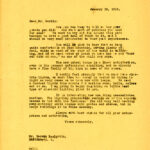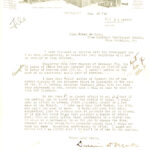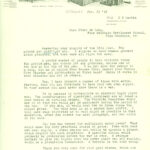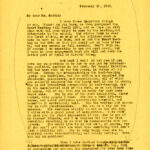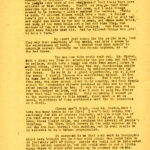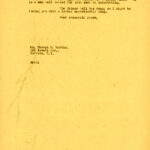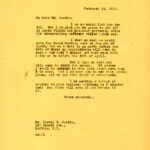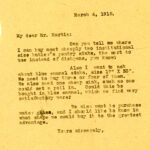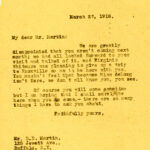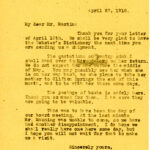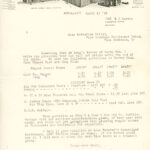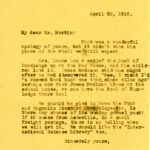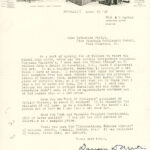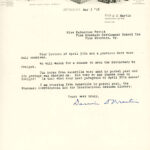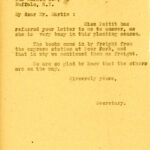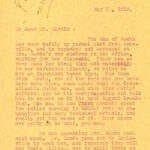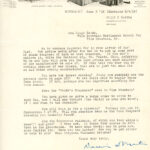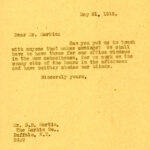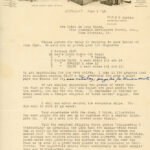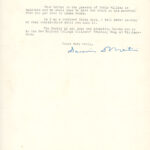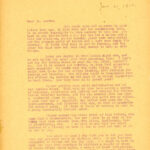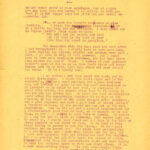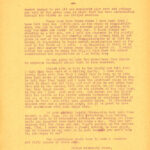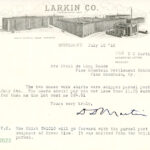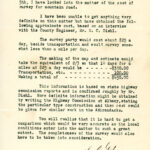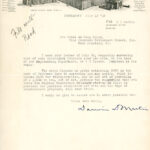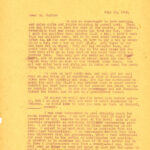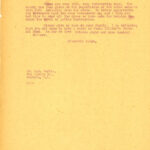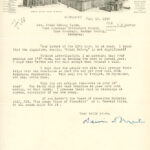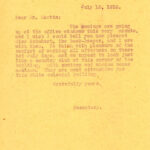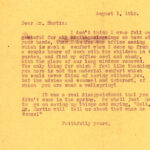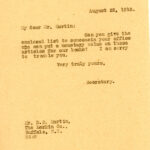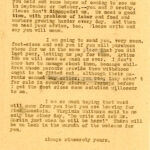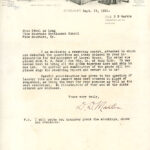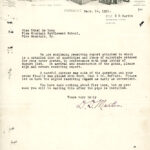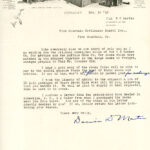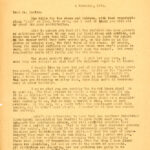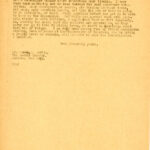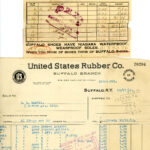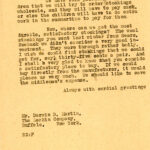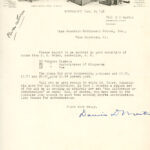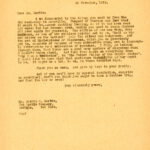Pine Mountain Settlement School
Series 05: GOVERNANCE
Series 09: BIOGRAPHY
DARWIN D. MARTIN (1865-1935)
Board of Trustees
1918 Correspondence
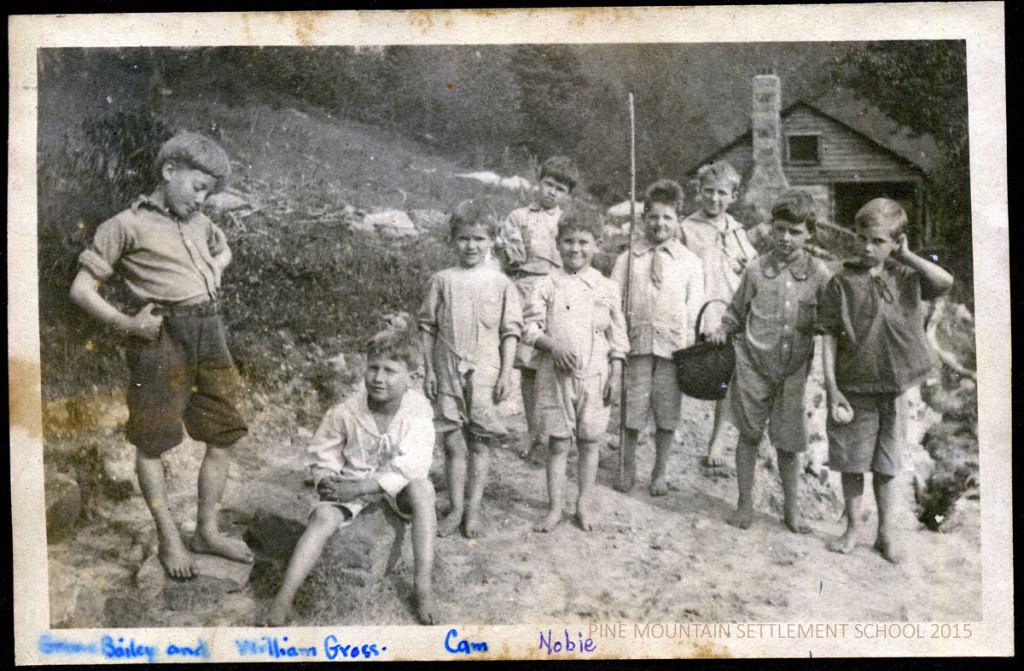
Angela Melville Album, II. Part Il. “Green Bailey [Gross] and William Gross…Cam…Nobie”
[melv_II_album_071.jpg]
DARWIN D. MARTIN 1918 Correspondence
An Executive of the Larkin Company in Buffalo, New York, Darwin D. Martin was a remarkable “find” for the rural institution of Pine Mountain Settlement in Harlan County, in the Central Appalachians of Eastern Kentucky. Martin must have felt the same joy in finding Pine Mountain Settlement as he remained enchanted with the school for over twenty years and served on the Board of Trustees and as Board Chair for over ten of those years. As Chairman of the Board opf Trustee he became a pivotal figure in the early development and success of the settlement institution. Pine Mountain Settlement, modeled after the urban settlement institution movement begun by Jane Addams in Chicago, Pine Mountain was an unpainted canvas that Martin eagerly began to explore with all his creative energy. In the early years of Pine Mountain Settlement School’s history, Darwin D. Martin’s contributions appear with frequency and remarkable creative force in an area severly challenged by growing industrialization, destabilization, and educational and physical poverty. The same energy he exercised at Pine Mountain Settlement was found in his executive position at Larkin Company where, at one time, he was among the highest paid executives in America.
Darwin Martin did not become one of the highest paid executives in America overnight, but was guided there by one of the most remarkable personalities at Larkin Company, in Buffalo — Elbert Hubbard. While Darwin had many good fortunes at the beginning of his career, one important encounter was making an impression on Elbert Hubbard Well known for his leadership in the Arts and Crafts Movement, Hubbard found in Martin an eager and energetic entrepreneur and he groomed him from his earliest beginnings with the company. One of the hallmrks of Martin and of Hubbard was their shared belief in the goodness of mankind and their responsibility to further causes that would raise the level of responsibility for the welefare of all peoples, particularly those who only needed a “leg-up” to thrive.
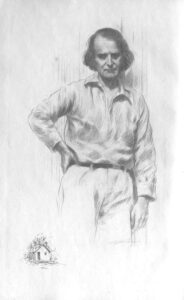
ELBERT HUBBARD INFLUENCE
An early travelling salesman for the Larkin Soap Company, Hubbard moved up the ranks of the Company and later founded his own organization, the Roycroft artisan community (not “company”). and
” “Do nothing, say nothing, and be nothing, and you’ll never be criticized.“
Hubbard, the foremost mentor of Martin, was a commanding figure in Martin’s choices in life. They both shared an enormous energy for living life to its fullest. The robust list of accomplishments of both men is testimony to the enormous drive in both to make the world a better place to live. The accomplishments of both is legendary. Both Hubbard and Martin were contributors not only to the health and welefare of mankind but they were both committed to a welefare that embraced beauty and generousity of spirit and wealth. Both envisioned a world graced by the creation of fine art and of craft and guided by deep moral values.
A good life was one that would always dip deeply into the creative spirit and they both dipped deeply into that well. The well of creativity, in their view, feeds into all areas of life. That view is also foundatiional to the strengh of Pine Mountain Settlement over the course of 100 years. It made an icon of Elbert Hubbard, though he did not live to enjoy Martin’s Kentucky projects, accomplishments, and wise counsel. Elbert Hubbard and his wife, Alice Moore Hubbard, died in the tragedy of the Lusitania, the passenger ship torpedoed by the Germans in WWI and that sunk off the coast of Ireland on May 7 in 1915, just three years after the founding of the settlement school at Pine Mountain.
Hubbard’s ideas and his writing still command a wide audience. Of particular interest to and perhaps an influence on or reflective of Martin’s life views, are those found in Hubbard’s well-known A Message to Garcia and Thirteen Other Things (1899) A 1910 and other copies are available through the Internet Archive, along with other editions books and periodicals by Hubbard. The following is an excerpt from A Message to Garcia …
…Have I put the matter too strongly ? Possibly I have ; but when all the world has gone a-slumming I wish to speak a word of sympathy for the man who succeeds — the man who, against great odds, has directed the efforts of others, and having succeeded, finds there’s nothing in it ; nothing but better board and clothes. I have carried a dinner-pail and worked for day’s wages, and I have also been an employer of labor, and I know there is something to be said on both sides. There is no excellence, per se, in poverty ; rags are no recommendation ; and all employers are not rapacious and high handed, any more than all poor men are virtuous. My heart goes out to the man who, when given a letter for Garcia, quietly takes the missive, without asking any idiotic questions, and with no lurking intention of chucking it into the nearest sewer, or of doing aught else but deliver it, never gets “laid off,” nor has to go on a strike for higher wages. Civilization is one long anxious search for just such individuals. Any thing such a man asks shall be granted. He is wanted in every city, town and village —in every office, shop, store and factory. The world cries out for such : he is needed, and is needed badly the man who can carry a message to Garcia. [p. 15-16]
-
- “A Brief History of the Larkin Company”. The Larkin Collection. The Monroe Fordham Regional History Center. Retrieved November 19, 2014.
- “Elbert Hubbard Papers Manuscript Group #17” (PDF). Indiana University of Pennsylvania. Retrieved November 18, 2014. Also, Selected Writings of Elbert Hubbard. The Roycrofters. 1922. pp. 16–17.
- Related: “To avoid criticism say nothing, do nothing, and be nothing”. 2013-07-12.
01. Jan 18, 1918. Ethel deLong to Darwin D. Martin.
Ethel asks about his garden and how the potato pen did. She discussed the installation of electric light notes that the School would need “a hundred lamps for varioius rooms to satisfy lighting requirements for the School. She also remark that the cost is low for small houses but a large one [such as the new School House] proves to be a “false economy.”
2.
Martin notes that his Government service has ended and he will be more readily available. He complies with the order of shoes and Artics and makes plans for the January 16th Board meeting in Lexington at home of Mrs. J.R. Morton. He makes an attempt to change the annual date of the BOT to April and not January, as the later date is preferable due to weather and chance to come to Pine Mountain.
3.
Potato pen, notes Martin didn’t make it at all, probably due to the use of grocery store potatoes. He suggests that now is not the time for an electricity plant for the School due to the War and 2X to 3X the normal cost.He suggests a dam on Greasy Creek to produce steam power with coal. He advises agains a storage battery idea as it “would be a precarious investment. A turbine is the only thing.”
4.
Ethel lwrites that the Board meeting has been postponed until April 20th when he can see the School in full session. She inquires about a War-time appointment for Angela Melville who is looking for other work after two years at PMSS. Ethel notes that she installed the book-keeping system but is not interested in other work at the School. Ethel gives her a generous recommendation and notes that she is not interested in “just a piddling job. She is only happy when she is carrying heavy responsibility, and really working…”. She advocates for a tour with stereoptican slide, victrola and going from one remote community to another to help the community understand the War. She relates a story of a trip to ? Wolf Creek where she met a man who asked for news of the War. She told him it may be turning against the Germans. He responded,
Well, he said “I allowed things would take a turn. A feller here’s got a boy in the army over in France, and he said he saw eight sun balls in the sky too, once, and three moon balls and one of the moon balls had a red and blue flag, and another of ’em had the stars and stripes. And there was eight more fellars seed hit. And he allowed things was going to take a turn.”
She then describes Mr. Fisher’s [Park W. Fisher] campaign to go to schools to explain the War to local communities in April. She then asks for financial hjelp in the Fisher plan. She remarks on a recent speaking tour by Caleb Powers to the area to inform people about the War. She hopes his work in Washington may find interested donors.
5.
Ethel de Long notes that Darwin D. Martin is ill and wishes him well. She notes that she will be leaving and will miss Martin’s visit before the Board meeting.
6.
March 4. Ethel deLong requests two butler’s npantry sinks for the School in blue enamel, “… which we find ver satisfactory ware.” She notes she also wants to purchase water glass and wants advice on the ware.
7. March 27. Katherine Pettit to Darwin D. Martin.
March 27. Katherine Petti writes a short note to Martin. Apparently Martin notified the School that he will be unable to come to PMSS before the Board meeting.
8.
9.
10.
11.
12.
13.
14.
15.
16.
17.
18.
19.
20.
21.
22.
23.
24.
25.
26.
27.
28.
29.
30.
31.
32.
33.
34
35.
36.
37.
GALLERY – DARWIN D. MARTIN 1918 Correspondence images
- martin_d_1918_001
- martin_d_1918_002
- martin_d_1918_003
- martin_d_1918_004
- martin_d_1918_004a
- martin_d_1918_004b
- martin_d_1918_005
- martin_d_1918_006
- martin_d_1918_007
- martin_d_1918_008
- martin_d_1918_009
- martin_d_1918_010
- martin_d_1918_011
- martin_d_1918_012
- martin_d_1918_013
- martin_d_1918_014
- martin_d_1918_015
- martin_d_1918_016
- martin_d_1918_017
- martin_d_1918_017a
- martin_d_1918_018
- martin_d_1918_018a
- martin_d_1918_018b
- martin_d_1918_019
- martin_d_1918_020
- martin_d_1918_021
- martin_d_1918_022
- martin_d_1918_022a
- martin_d_1918_023
- martin_d_1918_024
- martin_d_1918_025
- martin_d_1918_026
- martin_d_1918_027
- martin_d_1918_028
- martin_d_1918_029
- martin_d_1918_030
- martin_d_1918_031
- martin_d_1918_031a
- martin_d_1918_032-033
- martin_d_1918_034
- martin_d_1918_035
- martin_d_1918_036
- martin_d_1918_037
SEE
DARWIN D. MARTIN Board
DARWIN D. MARTIN Correspondence Guide
SEE ALSO

